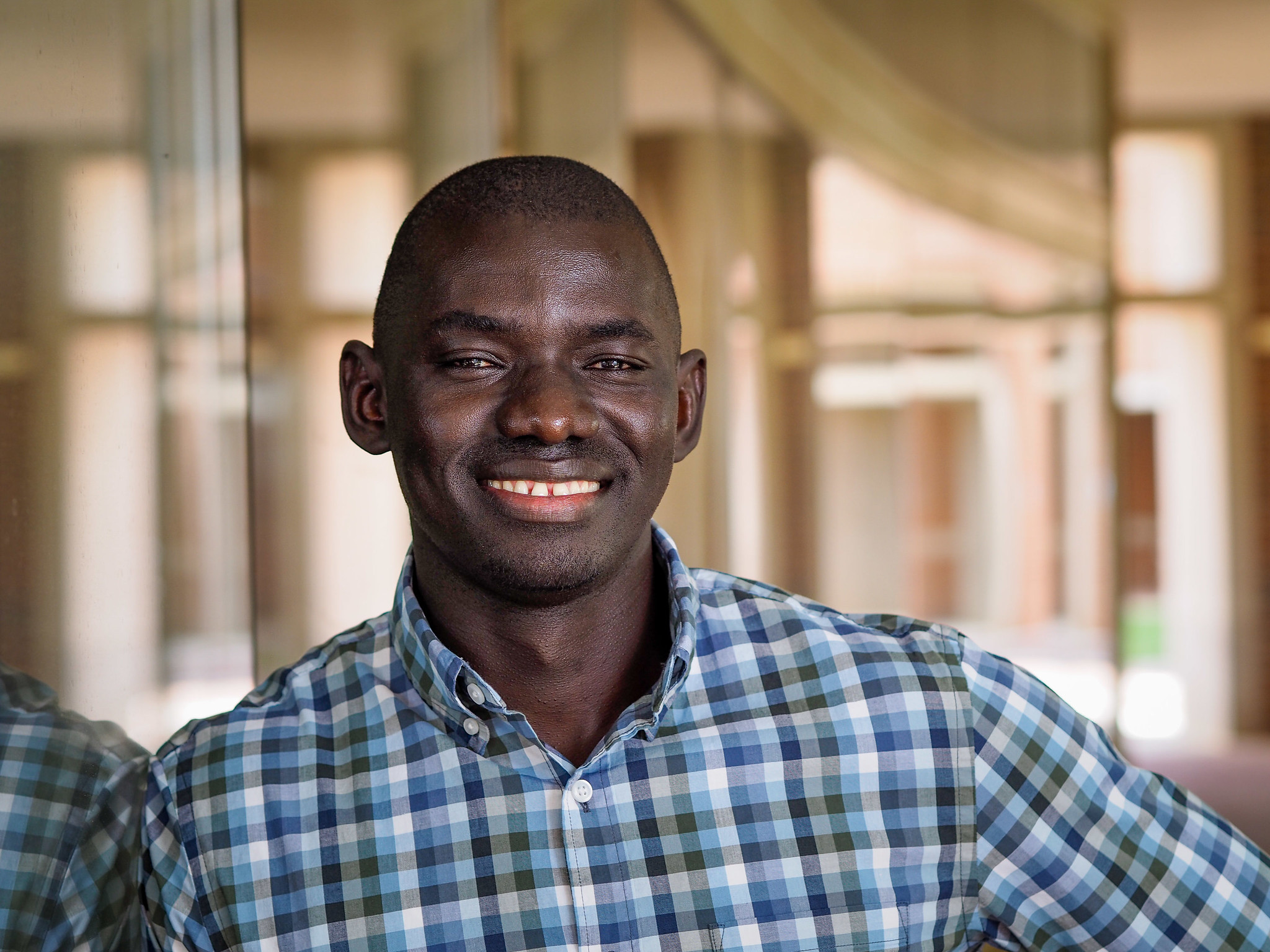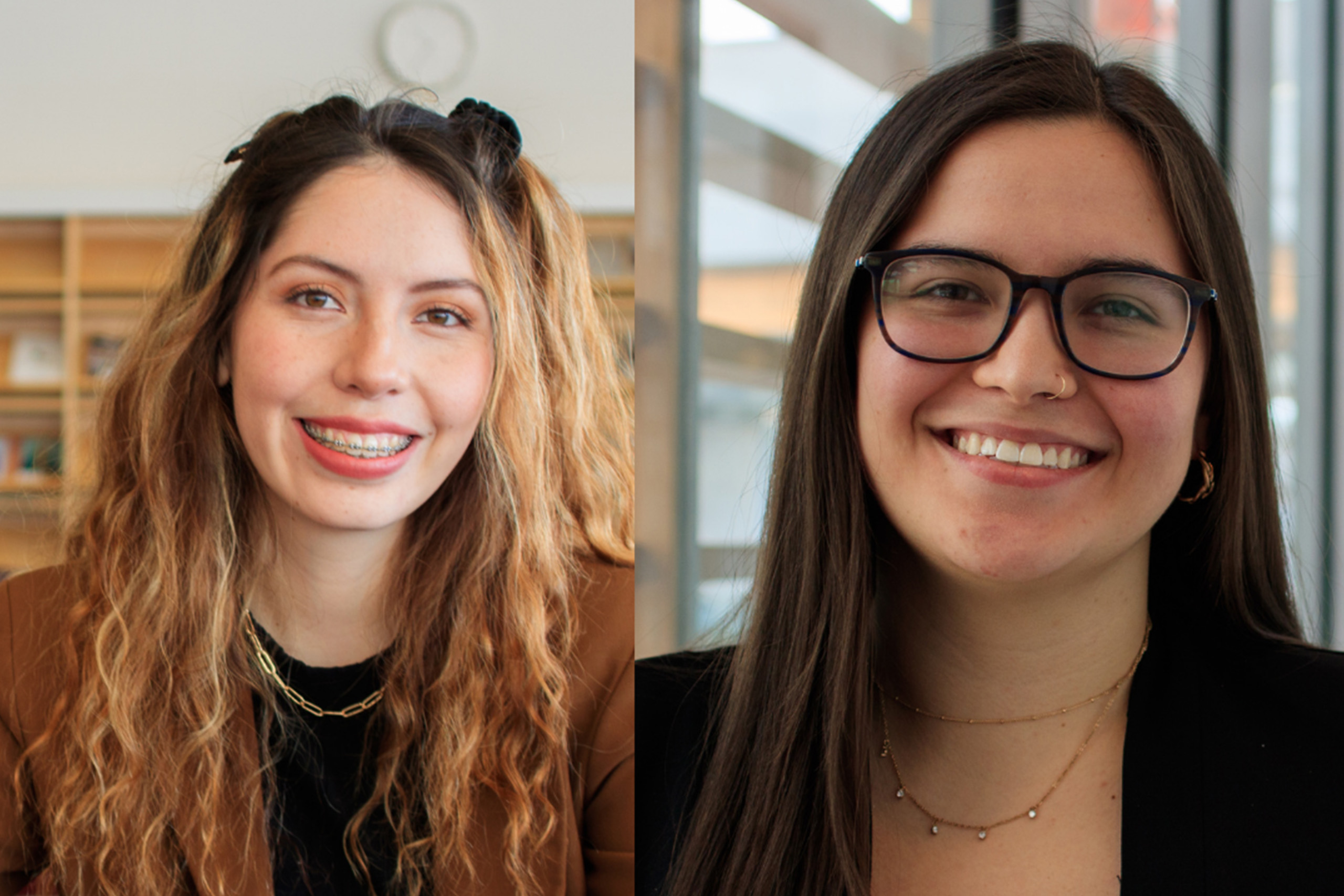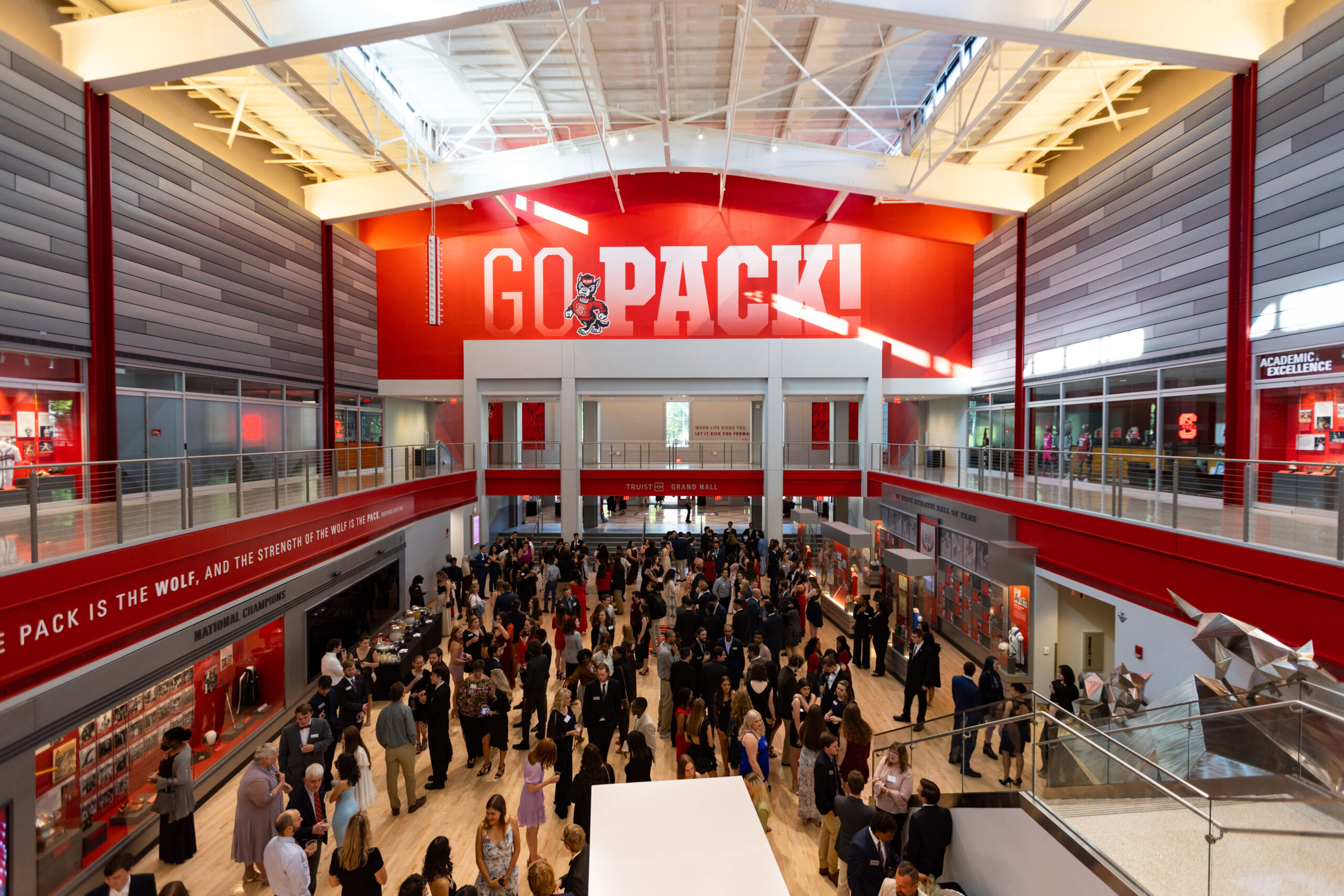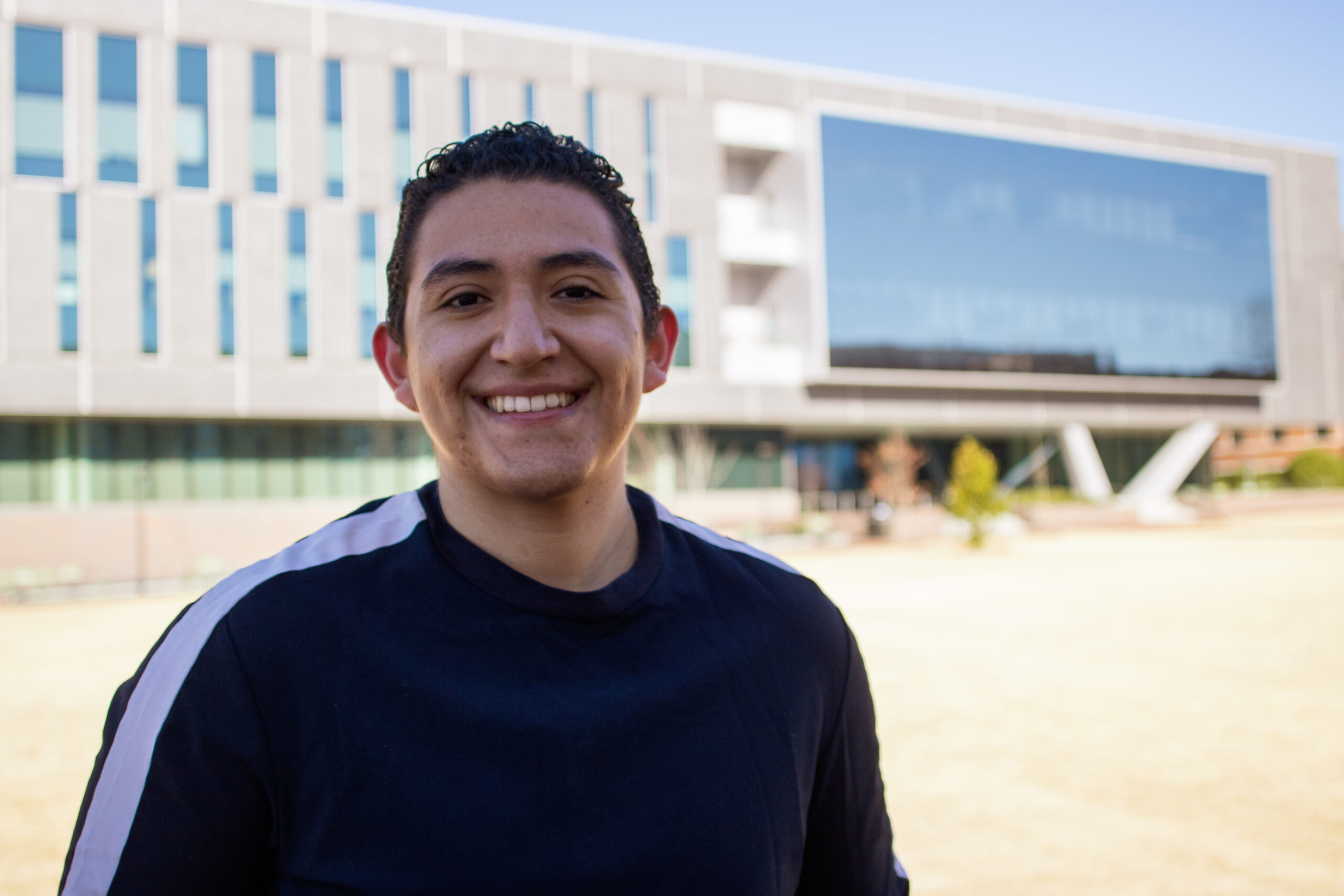Goodnight Spotlight: Balla Ndure

Goodnight Scholar Balla Ndure, T’22 is on a mission to use his vast interest, knowledge, and education in electrical engineering and renewable energy to help communities just like the one he grew up in. After graduating high school in Kerr Ngoyan in The Gambia, and working on several environmental preservation and electrical projects through scholarships while still in The Gambia, Balla moved to Raleigh, North Carolina where he attended and then graduated from Wake Technical Community College. Now in his final semester at NC State, Balla reflects back on his journey as a transfer student, and his aspirations for transforming the world around us post-graduation.
Goodnight Scholars Program: Tell us about yourself and your journey into the Goodnight Scholars Program.
Balla Ndure T’22: My journey to NC State and into the Goodnight Scholars Program was somewhat winding and certainly not expected. I am originally from Kerr Ngoyan, which is a small village in the North Bank Region of The Gambia, and I spent much of my life in The Gambia before moving to North Carolina. When I got to Raleigh, I decided to continue my studies at Wake Technical Community College. During my final year at Wake Tech, my favorite professor, perhaps of all time, mentioned that there would be an information session for this scholarship. I was interested but honestly did not think much about it. I had not heard of the Goodnight Scholars Program and did not realize what a great opportunity it was. After a few more reminders from my professor, I thought I really should attend this information session. Little did I know that I would be sold on NC State and the Goodnight Scholars Program at the information session by an NC State student/Goodnight Scholar who would later become my mentor.
What is your major and why did you decide to pursue this field of study?
My major is electrical engineering with a concentration in renewable electric energy systems.
I have been interested in pursuing a career in electrical engineering since studying electrical installation at the Presidential International Award (PIA) Program in The Gambia. After completing high school, I was awarded a scholarship by the Gambian government and began studies in electrical installation. Having grown up in a rural village with no electricity, I was thrilled to learn more about what was then an unfamiliar luxury to me.
Through my studies at the PIA Program, I learned about energy generation and transmission, electrical systems, and installation of electrical systems in commercial and residential buildings. My time at the PIA Program highlighted the benefits electricity can bring to a community. Today, my village still does not have electricity. Villagers, including my family, are not able to save food through refrigeration. Students must use light from a kerosene lantern, candle, or solar lantern, if available, to study at night. And, clean, running water is beyond reach.
I was interested then and am still interested now in electrical engineering because I want to help my village and villages like it.
How do you hope to contribute to the developments and studies of renewable energy? What do you envision as the future of this work for our society?
As I mentioned, I am interested in electrical engineering, specifically renewable electric energy systems, because I want to help communities like the one I grew up in. Through my work as an electrical engineer, I hope to expand access to renewable energy, build community capacity through training on renewable technologies, and work to ease, as well as hasten, the transition to renewable energies. I believe renewable electric energy systems are where we are headed. We are seeing the shift to electric cars, but I think we will also see the widespread shift in everything from jet skis to cargo ships. In fact, Norway recently launched the world’s largest electric ferry. Currently, I am working with my senior design group to develop an improved small-scale, lightweight floating solar power charging station that could theoretically be used by recreational boaters. I envision the world using similar charging stations to power our movement across the globe.
What made you want to be a beekeeper? How do you see this interest connecting to your professional aspirations?
I never really wanted to be a beekeeper, at least not at first. When I was growing up, my father was a forester with the Department of Forestry in The Gambia. In his free time, he kept bees. My two brothers and I would be forced to go out at night and help my father inspect the hives and harvest the honey. You could say at the time I was the least interested in beekeeping out of the three of us. Ironically, a few years down the road, I would be the one working for a UK-based charity, BEECause Gambia, as their Senior Field Officer in charge of training Peace Corps volunteers, Peace Corps staff, tourists, and Gambians across the country in beekeeping. And then later, I started my own business, Balla’s Bees, where I sold honey, wax, and handmade soaps and body creams. Today, beekeeping continues to be a hobby of mine.
In terms of how beekeeping and my professional aspirations in renewable energy relate, they don’t really. However, I have seen people sitting hives on solar farms. This could be a way to bring my personal and professional interests together, although I imagine placing hives on solar farms will bring about a whole new suite of challenges.
As a transfer student, how have you been able to bridge your experiences in your community college with your experiences at NC State? What advice would you tell other transfer students interested in coming to this institution?
For those interested in coming to NC State, first, I recommend taking a moment to reflect on where you have been, where you want to go, and how NC State will help you get there. Second, I recommend really digging into the many majors offered. You may think you know what you want to study but there may be another program that is a good fit or an even better fit than what you had in mind. Third, remember whatever major you choose does not have to be set in stone. You can switch programs, but it will take some planning.
Once you have decided on a particular academic program, I advise coming up with a plan. There will be a lot of paperwork and deadlines to manage. Be sure to take things step by step to avoid feeling overwhelmed.
Once enrolled, you should know the transition from another institution may be bumpy at times but there are numerous resources available to help you at NC State. I recommend doing some research early on to become familiar with the resources, so when you feel you are in a bind and need some help, you know where to look. I have personally found the library staff and the HKN engineering tutors valuable resources.
- Categories:


